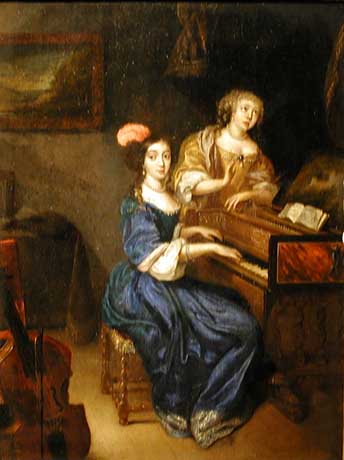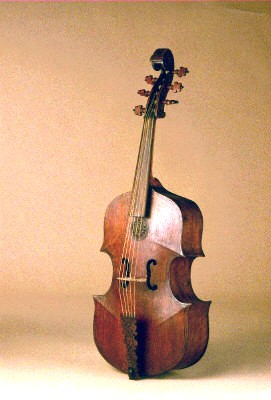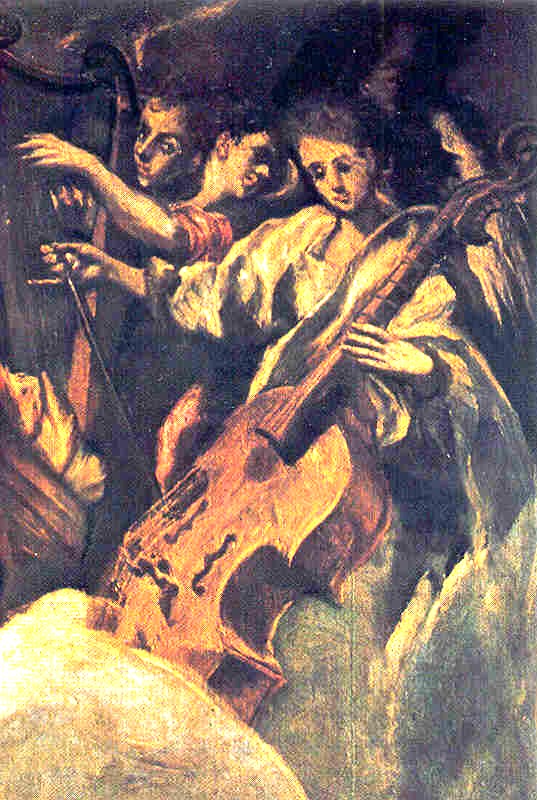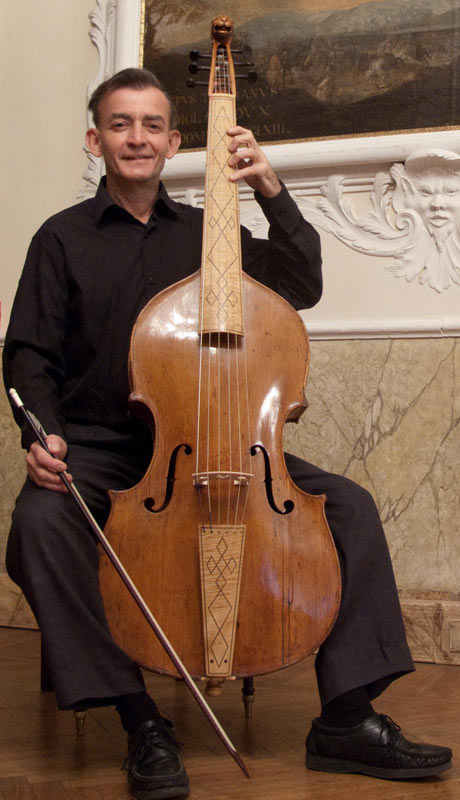Viols in the form of a violin, but with sloping shoulders
Netscher or De la Haye: Domestic music-making
(Vázquez Collection)Makers know to have made viols in this form: Gasparo da Salo, Francesco Bertolotti da Salo, Antonio Brensio, Domenico Russo. the Amatis, the Guarneris, the Ruggieris, Stradivarius, Jean Baptiste D. Salomon, the Kloz Family and many others.
A viola da gamba possibly by Gasparo da Salò (Paris)Dominichino: Sacra Conversazione between St. John and St. Petronio,
Galleria Nationale di Arte Antica, Barbarini Palace, Rome
El Greco: Colegio de Doña María de Aragón, in Madrid, The Annunciation, c.1596
Spanish viola da gamba of the 17th. C.
(Francisco Ribalta, ca. 1620,Museum, Valencia)
Bass viola da gamba by Claude Boivin (Paris, ca. 1740)
Although many viols in this form appear in painting, the surviving examples have more often than not been reworked as violoncelli, thereby losing the sloping of the shoulders. This viola da gamba by Boivin was purchased in cello form, having been converted by the famous luthier, Nicolas François Vuillaume in Brussels, sometime in the 19th C. by adding wood to the top of the body. This viol was then reconverted to its original form in 2001.
Bass viola da gamba
Pietro Buarneri (Mantova), Cremona, ca. 1700
The Viola da gamba in Italy
The Italian Renaissance viols:
Music for Charles V and Philip II
The Viola da gamba in England
The Viola da gamba in Austria
The Viola da gamba in Germany
The Viola da gamba in France
THE VIOLA DA GAMBA: RESOURCES INDEX
words of wisdom | shapes of viols
updated18.08.2011






